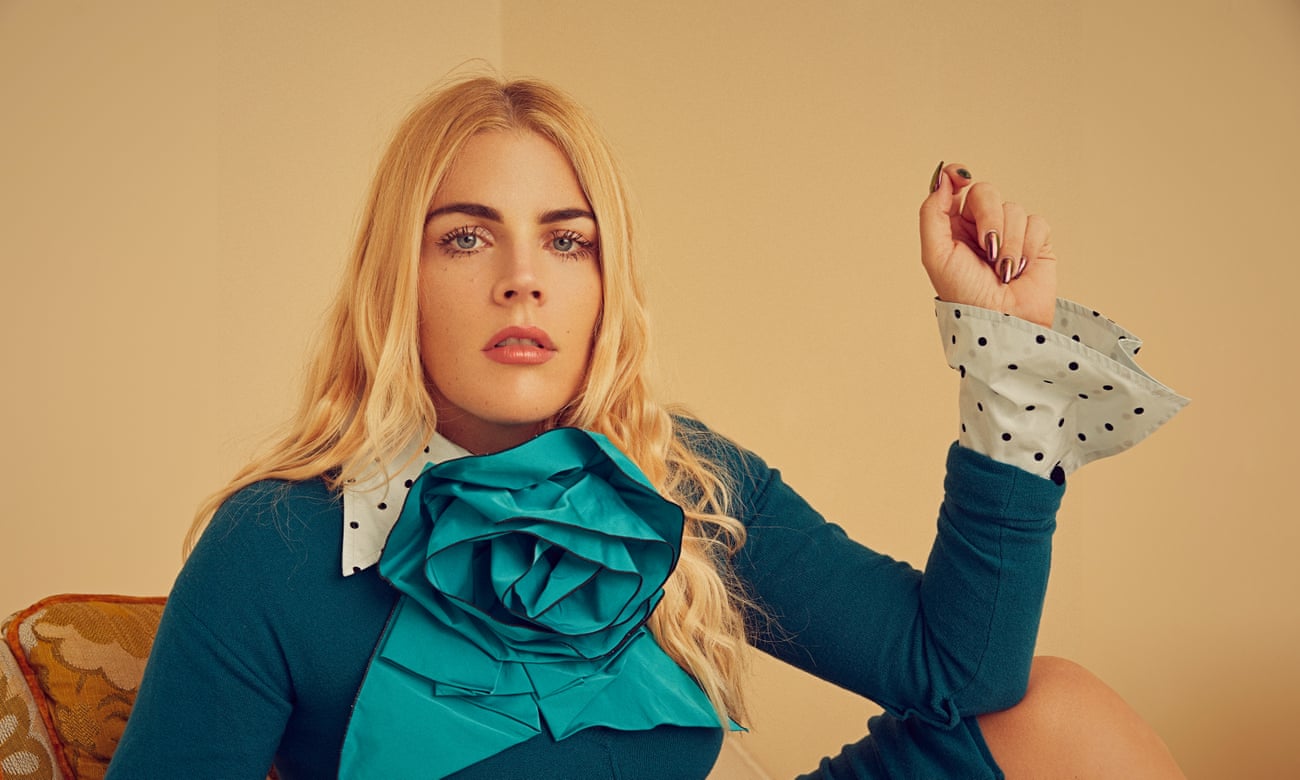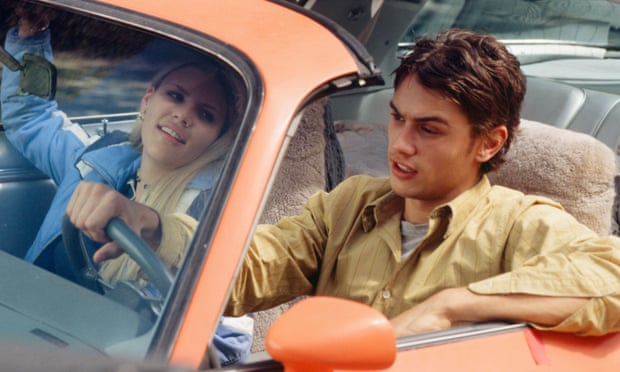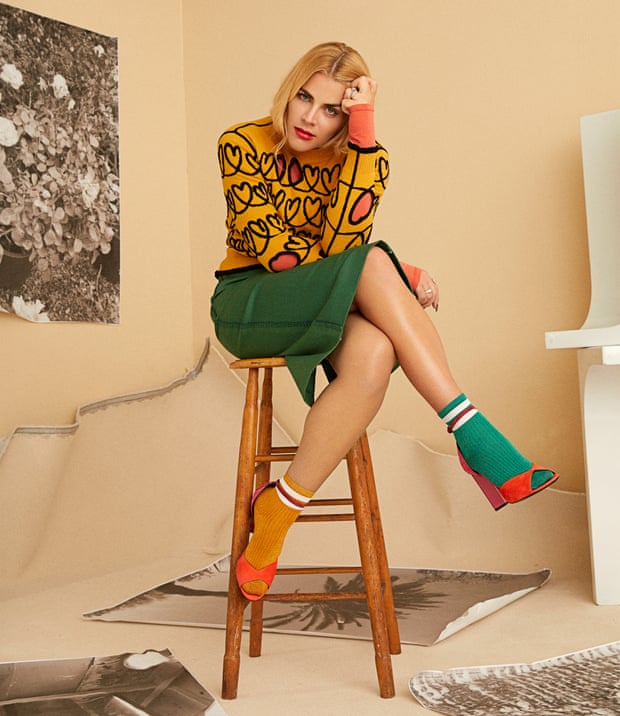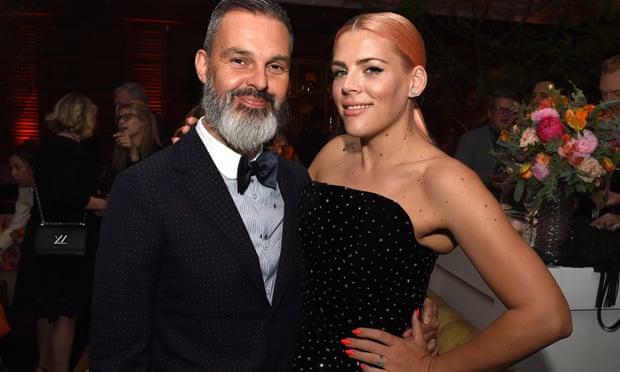
#MeToo #BusyPhilipps #DawsonsCreek #FreaksandGeeks
As guilty pleasures go, there are some that are painful to admit even to yourself. Not because they’re shameful, but because they’re so mindless that they make you question why you ever even bothered learning to read.
Here’s one of mine: every day I go on Instagram and watch Busy Philipps, who is possibly the most famous Hollywood personality you’ve never heard of, doing her workout routine. I don’t follow along at home or anything – this is something she only posts in a 15-second video clip, on Instagram Stories, every LA morning. I just sit there on my London arse while the camera gazes up at her, pushing and sweating and grunting from above, sweeping her blonde hair out of her eyes. And I’m gripped. Why?
Well, the good news (or perhaps the bad) is that it’s not just me. A million people now follow Philipps, who first tasted fame acting in teen dramas Freaks and Geeks (as the character Kim Kelly) and then Dawson’s Creek (as latecomer Audrey Liddell), and who more recently played Amy Schumer’s best friend Jane in the film I Feel Pretty. The best-friend zone is where she has been, in acting terms, for two decades, while seemingly becoming the actual best friend of half of Hollywood along the way. (Michelle Williams is her actual BFF.)
Yet she never became the lead until Instagram Stories appeared a couple of years ago, and Philipps, who was by now a married mother of two daughters, didn’t need to wait for an audition, and instead began to talk to the camera about her daily life. Not the starry stuff, but the everyday domestic dramas. “You guys,” she always begins excitedly, her best-friend confessional manner treading a fine line between vacuity and brilliance.
The New Yorker, a publication that does not tend to obsess over social media stars, declared Philipps to be the pioneer who had made the Instagram Stories format her own. This has led to her writing a memoir and being given a talk show on the E channel (home of her friends the Kardashians), both of which are about to be launched. And this is where I want to say that one of them, the book, has stopped me in my tracks completely and made me rethink everything we think we know about shiny, sunny social media stars.
Reading it felt like a punch in the guts, which is why I have come to Los Angeles to interview her about it, but before we can talk about it properly I have to get through that shiny, sunny personality stuff. Which is tricky because I’m literally halfway through the word “hello” in the café in Los Angeles where we have agree
d to meet, when a random woman interrupts to ask me where I got my stripy dress from.

I hurriedly tell her it was Zara, thinking I need to get rid of her and start the interview, but Philipps does not mind at all. “I have that dress, too,” she says, before telling the woman that it was last year’s Zara range, though, so if she wants one now she might want to… and so on. I suggest we find a quieter café, so Philipps guides us to a much less popular one down the street, where we head for the shaded back yard which looks empty – oh, apart from two women who immediately jump up to embrace Philipps, because they know her from her work with their LA libraries organisation, one that she actively supports, because her grandmother was a librarian “and the literacy rates in this country are abysmal…” and so it goes on.
Busy is busy. Her real name is actually Elizabeth, but her parents nicknamed her Busy and it stuck. This is something you find out at the start of her book, This Will Only Hurt a Little. She continues with some cute childhood anecdotes, how she really wasn’t one of the popular kids at school, the usual rise-to-fame stuff. You think you can see exactly where it’s going, except the childhood stuff then turns, seamlessly, into a description of her mother’s rage, her sister’s rage, of young Busy’s mouth filling with blood in the passenger seat after being smacked across the mouth by her mum, who is driving the car.
The part about teenage popularity angst then leads into a description of the boyfriend who ripped the skin off her back by pressing down so hard into her to rape her. How all she could do after it happened, while not even sure if rape was a word that she was allowed to think, was listen to the Tori Amos album Little Earthquakes again and again. She was 14 years old. “And I was a slut. And I was a slut. And I was a slut,” Philipps writes, before saying the memory has messed her up ever since, coming back in the form of night terrors before her wedding, or while pushing her baby out of her vagina with no pain relief. The book’s title is a cipher: it seems it only hurt a lot.
The part about teenage popularity angst then leads into a description of the boyfriend who ripped the skin off her back by pressing down so hard into her to rape her. How all she could do after it happened, while not even sure if rape was a word that she was allowed to think, was listen to the Tori Amos album Little Earthquakes again and again. She was 14 years old. “And I was a slut. And I was a slut. And I was a slut,” Philipps writes, before saying the memory has messed her up ever since, coming back in the form of night terrors before her wedding, or while pushing her baby out of her vagina with no pain relief. The book’s title is a cipher: it seems it only hurt a lot.
We talk about a few other things and Philipps is forthright, chatty, animated. Then I bring up the rape and the different tones in her voice all merge into a crushed monotone.
“It was intense,” she says quietly. “It was hard writing a book. It was hard going through that stuff again. Even though I’ve gone through it for many, many years. And then sort of more difficult was that I had never told my family. I just had kept it inside for my entire life. I mean, my husband knew – as an adult I had told people – but I had to have a conversation with my parents about it, and it was really painful, especially for my mother who,” she pauses, “was just devastated, that… she felt like she had failed me.”

Hollywood’s engagement with the #MeToo movement began one year ago after many women spoke out against Harvey Weinstein. Consent has since become a huge topic far beyond Hollywood, and not a straightforward one, as our societies begin to examine and discuss its shifting boundaries.
One reason Philipps’s book interests me so much is that she is fearless in examining her own agency in what happened. She no longer blames herself for what her boyfriend did, but she is also quite clear that she was the one who initiated the sexual activity, that she was trying to play tough, and that she tried to continue the relationship with him afterward. This story will be familiar to so many women who have quietly felt that if they called the guy afterward, it can’t have been rape, right? Wrong, says Philipps.
“I think, culturally, we have come so far since 1994,” she says, referencing the year it happened. “I mean, we’re talking about a time when, you know, Bill Clinton put a cigar in a girl’s vagina and she was the slut. Consent wasn’t talked about in the same way that it has been recently. It has shifted so drastically, which is incredible and fantastic, but it means that until recently, I had taken on a lot of the onus for what had happened. I just felt like it was mine to hold. It wasn’t anyone else’s. I had done this thing.”

Several names had to be changed before she could publish the book. “But maybe at some point, that guy will recognize himself in the story and maybe he’ll think about it, and, you know, come to terms with my experience. Maybe he won’t. I truly believe that he and I probably hold completely different recollections of the events. And for me, at this point, I understand that. But it has taken me… wait, how long?” – she thinks back, counting through her age – “it has taken me 25 years to understand.”
Philipps grew up in Scottsdale, Arizona, in a pretty normal family, far away from the bright lights of celebrity that she craved. She was massively keen to take acting classes as a child, and worked her way into what might sound like a grim job to many – pretending to be a live Barbie doll at a toy convention in her town – but which would prove to be her big break, as the CEO of Mattel turned up with Sharon Stone, who told Philipps that she was very talented and going to be a big star someday.
She applied to various colleges in Los Angeles and got into the Jesuit college Loyola Marymount with good grades, but not quite the exceptional ones they required. This was because she hand-delivered her application, and walked straight up to the head of admissions, who took a shine to her.
While in college she was cast in Freaks and Geeks, in which James Franco played her boyfriend. He does not come off well in the book – at one point during a rehearsal she describes how he throws her to the ground unexpectedly and she weeps in pain. The crew were shocked. “But James is a movie star,” she writes. “He was horrible to me, yes, but he’s also gorgeous and charming as hell.”
She tells me that she came into acting around “a bunch of male actors who had read the book Easy Riders, Raging Bulls, and they thought, ‘Oh that’s the way to be a man and an actor.’ It’s about those sort of golden years of, you know, manly man actors, De Niro and Al Pacino and the making of Taxi Driver and The Godfather, and their immersion into the roles and their whatever.” She sighs.
“Sometimes I think male actors just take issue with the fact that their job is putting on make-up and pretending.”

Acting was never a solid income for Philipps, whose husband, screenwriter and director Marc Silverstein, is also dependent on the same wavering industry. She writes in the book about her money fears, which is why she now does paid posts for brands, for which she has taken some flak. “People fundamentally have a really misguided idea about your wealth because you were on a huge TV show. I’ve been on three big TV shows and I was broke by age 28. I’d be stupid not to do paid posts, I think.”
She did one last week, “and somebody was going off at me [in the comments] about how I’ve got this new talk show coming out and I’ve been an actress for years and I’m not some mom blogger who should be getting money for this. But everywhere you go in the world you see advertising billboards, you watch commercials before you watch your YouTube videos, before your television programmes. Advertising is how artists have been compensated since the beginning of time, or at least since the beginning of TV and movies. So let me sell some soap.”
She says she had a “weird sort of stalkery troll at one point that was upsetting me and making me feel like, ugh, I shouldn’t do this at all”. Then there’s the fact she puts her kids on there, too. “Sometimes I question Marc and my early decision to allow our children to be on my social media. But ultimately, I’m OK with it and they’re OK with it.” She thinks about this. “I go back and forth. I think everyone has that inclination, at one point or another, to delete everything and disappear.”
She will turn 40 next year, and she has this whole new chat show to herself. Julia Roberts will be among the first interviewees, and Busy is also longing to get Oprah. Does this finally feel like her big moment? She says no, it’s just one of a lifetime of moments. “I think my friends and I have had discussions lately where we’re waiting for life to get easier,” she says, “and we’ve all had the recent realization that it never does, not for anyone. And once you have that realization, it’s incredibly freeing.
Of course, we’re all old enough to know that Instagram influencers don’t really have the perfect lives they seem to, but it sure helps to hear one of them admit it. Her book doesn’t end with her marriage being all rosy, but with the couple going into therapy and Busy admitting she recently almost had an affair. Philipps also admits she started talking to Instagram because she was a new mother, lonely and lost. “I wasn’t looking for millions of eyeballs,” she tells me. “I was sort of just looking for one. You know what I mean? Just someone. We’re all just floating out there in the ether. Is anybody out there?”
The last chapter in the book is her favorite. It also contains her discovery that her highly intelligent mother, who lived with a lot of simmering anger, had actually wanted a whole other life, but her dreams had been shut down in a job interview after college, by a man who put his hand on her knee and said she was too pretty for a career. “The humiliation – I just, I really feel for her still. Like it’ll make me tear up” – she looks like she might cry – “that she put her dreams on hold because she was told by some dude, ‘Nope, not for you, honey.’”
Suddenly everything makes sense. I look at Busy Philipps advertising a pizza with her kids, and I know she’s doing it to wield her own money and power. Because underneath even the smiliest of online influencers lie generations of women’s fury. And those gym videos? I no longer see a perky blonde in a crop top. What I see is a woman looking down from on top, the female gaze not the male one, while she builds muscle memory to replace her body’s other memories. I see a woman strengthening her arms so that nobody can ever throw her down and crush her again.
This Will Only Hurt a Little by Busy Philipps is published by Sphere at £16.99.
Production by Stephanie Porto; styling by Erica Cloud; set design by Cooper Vasquez; hair by Kristin Heitkotter at TMGLA; makeup by Jamie Greenberg at Wall Group using Chanel; hair by Kristin Heitkotter for TMG using Oribe and T3.
Comments
Post a Comment